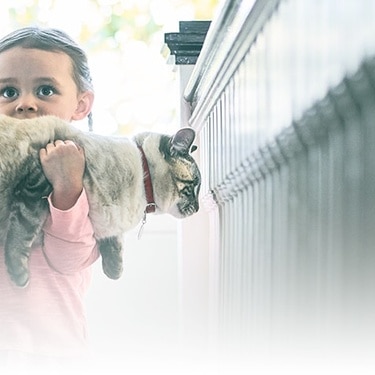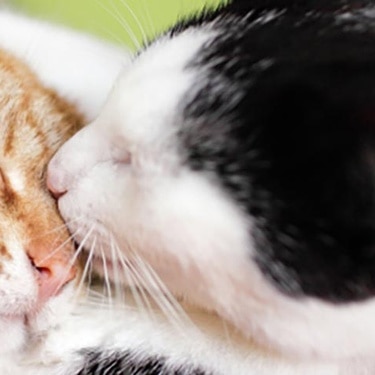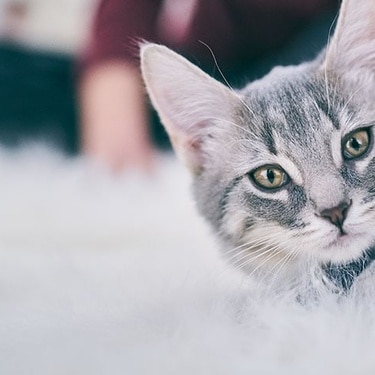
-
Find the right food for your petTake this quiz to see which food may be the best for your furry friend.Find the right food for your petTake this quiz to see which food may be the best for your furry friend.Health CategoryFeatured products
 Adult Perfect Weight & Joint Support Chicken & Brown Rice Recipe Dog Food
Adult Perfect Weight & Joint Support Chicken & Brown Rice Recipe Dog FoodThis weight management and mobility support dog food was created with Hill’s unique understanding of the biology of overweight dogs.
Shop Now Puppy Sensitive Stomach & Skin Salmon & Vegetable Stew
Puppy Sensitive Stomach & Skin Salmon & Vegetable StewGentle on stomachs while nourishing skin & supporting development in growing puppies
Shop Now Adult 6+ Large Breed Chicken Meal, Barley & Rice Recipe Dog Food
Adult 6+ Large Breed Chicken Meal, Barley & Rice Recipe Dog FoodSupports energy level, joint health, and beautiful coat in large breed mature dogs
Shop Now -
DogCat
- Cat Tips & Articles
-
Health Category
- Weight
- Skin & Food Sensitivities
- Urinary
- Digestive
- Kidney
- Dental
- Serious Illness
-
Life Stage
- Kitten Nutrition
- Adult Nutrition
Featured articles Water
WaterWater is the most important nutrient of all and essential for life. Animals can lose almost all their fat and half their protein and still survive, but if they lose 15% of their water, it will mean death.
Read More Pet Food Storage Tips
Pet Food Storage TipsWhere you store your cat and dog food can make a big difference in the quality and freshness once it is opened. Here are some common questions and recommendations for optimal storage for all of Hill’s dry and canned cat and dog food.
Read More The Right Diet For Your Pet
The Right Diet For Your PetLearn what to look for in healthy pet food & nutrition, including ingredients, quality of the manufacturer, your pet's age, and any special needs they have.
Read More -


Concerned about how round your cat has become, or even notice your cat losing weight too quickly? It's easy for people to realize they've gained too much when their pants get a little snug. When it comes to a feline friend, however, its up to you to watch for warning signs that she's a little too fluffy. If your cat needs to battle a big belly, follow these tips when feeding and caring for her.
Pawing at Obesity
Some cats are obviously obese by looking at their build, whereas others are en route to becoming an overweight cat of which their owners are missing the key warning signs. The first one? Large fluctuations in weight. Believe it or not, your cat losing weight should be a concern too, especially if she develops a health issue following excess weight. Some health issues can cause her to gain weight, but others can come about because your cat's extra weight is making them sick and lighter. If your cat shows signs of any health issue, be sure to talk with your veterinarian, who can determine whether or not she needs to shed a few pounds to improve her overall health.
Another sign that your cat is headed towards obesity is constant hunger. Feeding your cat a diet that is rich in fiber and protein can stimulate metabolism while also making your cat feel fuller longer. By giving your cat the proper nutrients they will feel more active, eat less often, and have a greater chance of maintaining a healthy weight.
Lack of Activity
Another sign you may have an overweight cat is when she's less active than she used to be. Once a feline is spayed or neutered, it starts to show signs of a slower metabolic rate, which means she may be less active and therefore need fewer calories. If this caloric intake isn't adjusted properly, she may continue to gain weight and become obese.
The age of your cat also needs to be considered when monitoring activity level. Typically, older cats do become less active and therefore may need to eat less food. If she was recently spayed or neutered, or has been eating the same amount all along, it may be time to look at how active she is and whether overfeeding could be tiring her out. Sometimes, pet parents who adjust and cut back on food servings (or their size) notice her activity level pick up as a result. Also, consider asking your vet about a cat food specially formulated for cats after they have been spayed or neutered; this type of food accounts for the decrease in your cat's metabolic rate to reduce the chance of putting on added weight.


Tasty Tips
Are You Overfeeding?
The first step in helping a cat losing weight properly is to control the amount of food you're putting in her bowl. With the help of your veterinarian, choose a food that matches your cat's current age and dietary needs. Your food choice should be one that includes all the nutrients your cat needs to maintain a healthy life. Cats should also avoid human foods and products filled with artificial flavors and additives. Unsure about a type of nutrient rich food or how much to give your cat? Start by looking on the back of the package for suggestions (remember, one cup doesn't mean a heaping cup of food). It may be a good idea to get a measuring cup to track how much total food you are feeding her every day. In general, cats who are fed two or three smaller (and measured) meals per day tend to maintain a healthy weight.
Once you know exactly how much food your cat's getting each day, you should discuss the amount and frequency with her veterinarian. Although the back of food bags do give a general idea of how much your cat should eat, your personal veterinarian is ultimately the best one to determine the type of food and the amount your cat should eat to lose or maintain a healthy weight. Once you have these food amounts and a feeding schedule on track, your next step is to incorporate proper (yet entertaining) exercise into her indoor routine.
Help Them Exercise Away the Weight
Food adjustments alone can help cats avoid obesity, but for most, it needs to be a combination of diet and exercise. Taking your cat on a walk or run with you isn't the best idea, but there are many ways you can get moving together in the comfort of your own home. Cats are natural predators—thanks to their ancestors—and it's important for your cat to find playful ways to tap into this instinct. It can be fun for both cats and cat parents to set up new and creative games, such as hide-and-seek or a miniature obstacle course inside the house. If you don't have simple items in your house that your cat is interested in playing with, a few new toys may help get her engaged and ready to be more active. Check out our a list of cat games you can play with your cat to get her moving.
Start by getting your cat to play for about five minutes per day. After a few weeks, try to get her to a point of losing weight at the same time by encouraging her to move at least ten minutes every day. Any increase in activity could help your overweight cat get leaner and even maintain a healthy weight consistently. Once she's eating right and keeping with a more active routine, she will truly be enjoying a higher quality of life—and that is something all pet owners want for their affectionate companions.
Taking Steps to Maintain It
Keeping your cat in healthy weight range not only improves your pet's quality of life; it can also save you, the parent, a lot of money. Pet owners spend millions of dollars every year fighting health problems caused by obesity, according to PetMD. Whether you have an obese cat now, one who's showing warning signs of being overweight, or just general concerns about her potential for obesity, taking steps to improve your cat's food intake and activity level benefits the whole family. To keep your cat maintaining a healthy weight, be sure to continually monitor that activity level and have your vet regularly evaluate her weight and dietary needs.
Even the huskiest cats can have a chance for a healthier life with help from their owners. Don't get discouraged if you have an overweight cat! Try some of these nutritional and physiological ideas and continue to work with your veterinarian toward a cat who can maintain a healthy body.


Chrissie Klinger is an educator, writer and mother of two children, three dogs and three cats. Her dog Jake loves sitting on her lap every chance he gets! She enjoys living an active and eco-friendly lifestyle in rural Pennsylvania.
Related products

With delicious chunks in a decadent gravy

With delicious chunks in a decadent gravy

Gourmet daily nutrition, carefully made. Tasty chunks with chicken & beef in a decadent gravy. Supports digestive health, nourishes skin and promotes a lustrous fur.

With delicious chunks in a decadent gravy
Related articles

Provide the best possible treatment for cats with sensitive skin by spotting the signs, knowing the causes, and understanding the remedies. Learn more now.

Being overweight puts a cat at risk for developing many serious health issues. Weight gain indicates an increase in body fat and usually results when your cat eats too much and exercises too little.

Get helpful information on proper feline oral healthcare and why it's so vital to take care of your cat's teeth.

HillsPet Nutrition provides information on proper nutrition, fitness and special needs in keeping your cat healthy and happy.

Put your cat on a diet without them knowing
Our low calorie formula helps you control your cat's weight. It's packed with high-quality protein for building lean muscles, and made with purposeful ingredients for a flavorful, nutritious meal. Clinically proven antioxidants, Vitamin C+E, help promote a healthy immune system.
Put your cat on a diet without them knowing
Our low calorie formula helps you control your cat's weight. It's packed with high-quality protein for building lean muscles, and made with purposeful ingredients for a flavorful, nutritious meal. Clinically proven antioxidants, Vitamin C+E, help promote a healthy immune system.

